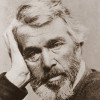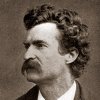“ for men may be ruined and spoilt in many ways; but the things are not pleasant, but only pleasant to these people and to people in this condition. Those which are admittedly disgraceful plainly should not be said to be pleasures, except to a perverted taste; but of those that are thought to be good what kind of pleasure or what pleasure should be said to be that proper to man? ”
Aristotle, Nicomachean Ethics (c. 334 BC - 330 BC). copy citation
| Author | Aristotle |
|---|---|
| Source | Nicomachean Ethics |
| Topic | pleasure taste |
| Date | c. 334 BC - 330 BC |
| Language | English |
| Reference | |
| Note | Translated by W. D. Ross |
| Weblink | http://classics.mit.edu/Aristotle/nicomachaen.mb.txt |
Context
“If this is correct, as it seems to be, and virtue and the good man as such are the measure of each thing, those also will be pleasures which appear so to him, and those things pleasant which he enjoys. If the things he finds tiresome seem pleasant to some one, that is nothing surprising; for men may be ruined and spoilt in many ways; but the things are not pleasant, but only pleasant to these people and to people in this condition. Those which are admittedly disgraceful plainly should not be said to be pleasures, except to a perverted taste; but of those that are thought to be good what kind of pleasure or what pleasure should be said to be that proper to man? Is it not plain from the corresponding activities? The pleasures follow these. Whether, then, the perfect and supremely happy man has one or more activities, the pleasures that perfect these will be said in the strict sense to be pleasures proper to man, and the rest will be so in a secondary and fractional way, as are the activities.”
source



